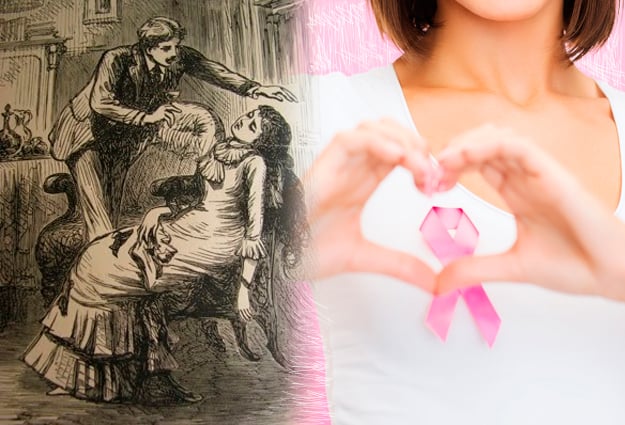
Let's get one thing out of the way first - I don't swoon. I don't know many women who do. In fact I find most women to be remarkably tough.
Perhaps that's why I see red flags instead of pink ribbons when policy makers use "emotional distress" from false-positive results in mammography as their rationale for recommending less access to screening mammography for women than we enjoy now. Apparently, I'm not alone.
In his May 22 article in the Wall Street Journal, Dr. Daniel Kopans, (professor of radiology, Harvard Medical School; senior radiologist, Breast Imaging Division of Massachusetts General Hospital) stated "There is a disconcerting effort afoot to reduce a woman's access to mammography screening for breast cancer by making it seem useless or even harmful.
"The movement dates to November 2009, during the debate over the Affordable Care Act, when the U.S. Preventive Services Task Force, which reports to Congress, dropped its recommendation for mammography screening for women in their 40s and instead recommended screening starting at age 50.
"In 2009 no one on the task force had experience in caring for women with breast cancer, yet the task force decided that it would 'altruistically' spare women in their 40s the 'harms' associated with mammography. The main 'harm,' as the task force saw it, was for a woman to be recalled after a screening mammogram for additional evaluation. This was made to seem more ominous by terming every recall a 'false positive' if cancer was not found."
Public outcry led to the Obama administration overriding the task force's recommendations and mandating insurance coverage for mammograms for women in their 40's when the act was signed into law 2010.
However, the controversy and efforts to reduce access to screening mammography continues with studies citing that screening mammography results in more false-positives (and as an extension, mental distress in women) and that screening, at best, has only a small effect on the rate of death from breast cancer.
Small effect...let that sink in for a bit.
If you happen to be that one woman whose life was saved by early screening, do you really care what minuscule percentile you might be in? My hunch is no.
It may be that the "small effect' is due to the fact that more are women being diagnosed with early stage cancers thanks to screening programs and living, not dying, thanks to advances in breast cancer treatment over the last 40 or so years.
These are the facts:
-
1 in 8 women will get a breast cancer diagnosis in her lifetime
-
the most aggressive cancers occur at younger ages (40 and below)
-
breast cancer is one of the most survivable cancers, as long as it is detected in its earliest stages
So while I appreciate the concern for my emotional well being, I'd much rather have a little panic attack and find out via a biopsy that the microscopic abnormality seen on my mammogram was benign. And if it wasn't, I'd much rather catch it early enough when it's treatable and curable, rather than live in blissful ignorance until I have a lump too large to ignore and learn that the cancer has spread to my bones or lungs.
I think most women feel the same way. A recent study at Dartmouth found that while false-positive mammograms did cause an increase in women’s anxiety, the effect was temporary and had no measurable influence on overall health and well-being. In addition, the false-positive actually increased women’s intentions to use breast cancer screening in the future.
So let's eradicate this Victorian-age thinking when it comes to women and breast health. We're stronger than you think.
A false-positive might upset us, an additional procedure might hurt and scare us, but it won't permanently damage us, and it certainly won't kill us.
A delayed diagnosis,on the other hand, most likely will.
Personally, I'd rather be a breast cancer survivor rather than its victim. How about you?
Annual mammograms Beginning at 40. Breast Density Notification Laws in Every State. Skin Markers on Every Mammogram.

Mary Lang Pelton
Director of Marketing Communications
